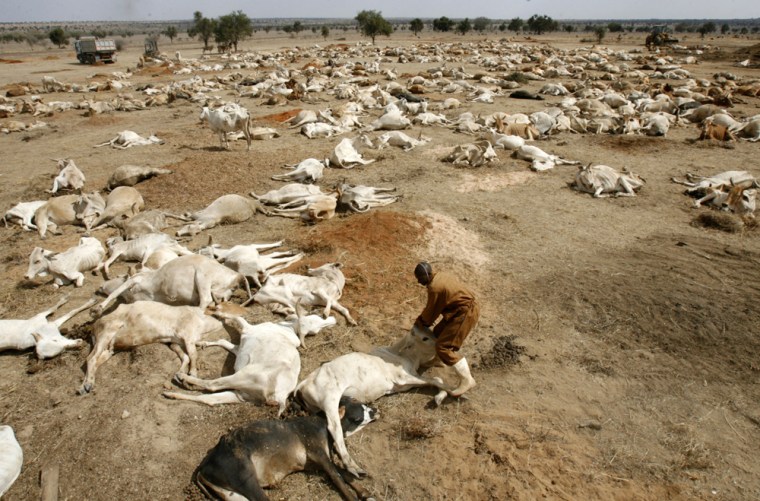A severe drought, high food prices and conflict have left more than 5 million people hungry across the Horn of Africa, the head of U.N.'s World Food Program said Saturday.
The drought began with the failure of rains late last year in northern and eastern regions of Kenya, south-central Somalia and eastern Ethiopia, said the agency's executive director, Josette Sheeran.
Sheeran on Saturday visited Nairobi, Kenya's capital, on a fact-finding mission.
"More and more people need help in the Horn and we're now on high alert over the impact of the March to May long rains," Sheeran said, adding that last year's rain failure increased the number of people in need of assistance by 1.4 million.
Sheeran warned that the number of people in need of food assistance could increase further if the region, which includes Djibouti and parts of Uganda, continues to receive poor rains.
"The outlook for the rains in eastern parts of the Horn is worrying, especially combined with rising food and fuel prices and conflict," Sheeran said in a statement. "If the latest meteorological forecasts of below-normal long rains in the eastern Horn are correct, the crisis will worsen in those areas and more people will go hungry."
Peter Smerdon, the agency's Nairobi-based spokesman, said the price for a 110-pound (50-kilogram) bag of maize has increased from 25 to 120 percent in some remote parts of the Horn, while cereal prices of the same size are expected to increase by 40 to 50 percent in the next six months.
The global rise of food and fuel prices are compounding the pressure on the poorest, many of whom hadn't yet recovered from the brutal 2007 to 2009 regional drought in the region, said Sheeran.
The U.N.'s Food and Agriculture Organization said last month that global food prices are the highest in 20 years and could increase further because of rising oil prices stemming from the unrest in Libya and the Mideast. The increase was driven mostly by higher prices of cereals, meat and dairy products, FAO said.
Sheeran said WFP so far has 44 percent of the resources it needs to feed more than 5 million people in Kenya, Somalia, Ethiopia, Djibouti and the Karamoja region of eastern Uganda from April through September.
"The shortfall will hamper our efforts to provide food where it is needed most," she said.
